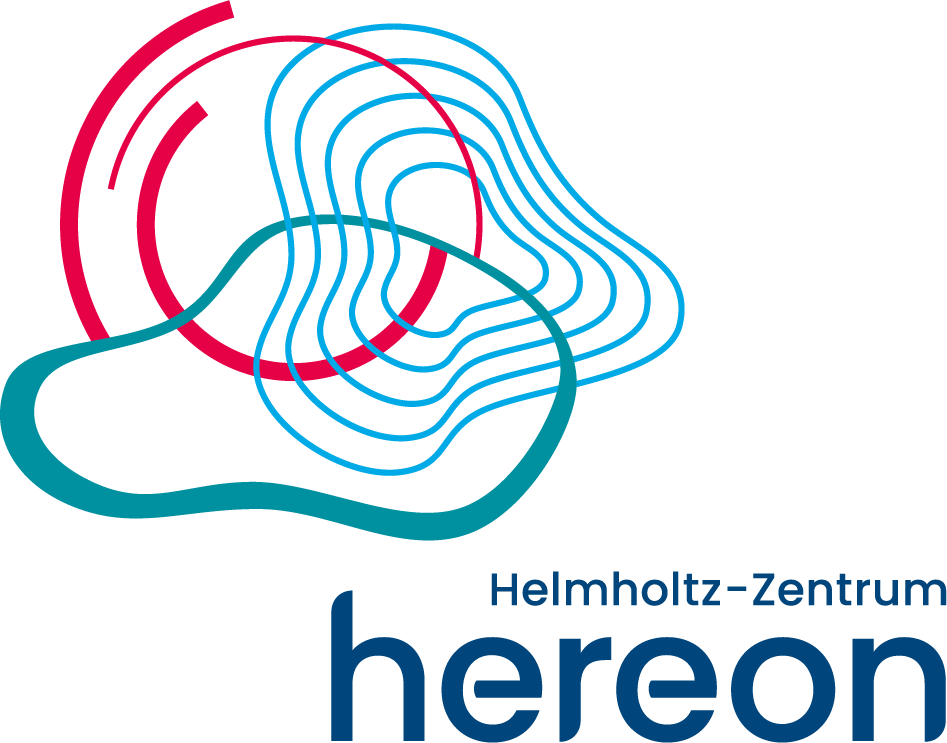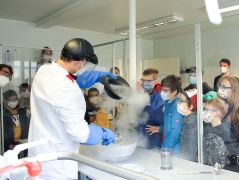MLZ is a cooperation between:
 > Technische Universität München
> Technische Universität München > Helmholtz-Zentrum Hereon
> Helmholtz-Zentrum Hereon
 > Forschungszentrum Jülich
> Forschungszentrum Jülich
MLZ is a member of:
 > LENS
> LENS > ERF-AISBL
> ERF-AISBL
MLZ on social media:

MLZ (eng)
Lichtenbergstr.1
85748 Garching
03.10.2025
Mouse Day for young and old brings 1,000 people to Garching
Around 1,000 people gathered at the interactive stands in the mechanical engineering department of the Technical University of Munich (TUM) on German Unity Day. In addition to the FRM II research neutron source and the Heinz Maier-Leibnitz Center, ITM Radiopharma, the Society for Nuclear Services, and the TUM School of Natural Sciences also presented themselves here. The two lectures on physics and chemistry were crowd pullers, each attracting 400 spectators, as were the guided tours of the FRM II, which were attended by a total of 246 adults and 88 children.

The banana ice cream served after the demonstration of experiments with nitrogen tastes delicious. © FRM II / TUM
Ten-year-old Annika from Neuburg an der Donau set her alarm for 6:30 a.m. so she could be at the research neutron source on time for the first Maus children’s tour at 9 a.m. She was most excited about the freshly made banana ice cream that was served after the demonstration of the experiments with nitrogen. In addition, the 15 mice between the ages of seven and 13 constantly peppered their guides with questions. Annika was more interested in the tangible things: “Why is there a lifebuoy?” she wanted to know, for example, when looking at the reactor pool. The children quickly understood that lifebuoys are required for safety reasons when there is an open water surface, even if it is not intended for swimming.
Dancing nitrogen
When 12-year-old Gustav asked about the Leidenfrost effect, he revealed that he had already read a lot about physics and chemistry in his spare time. “The phenomenon occurs when liquid nitrogen, which is around minus 200°C, hits a warm surface and dances across the surface as droplets,” explained Dr. Tobias Neuwirth, postdoctoral researcher at FRM II, as he stirred the banana ice cream with nitrogen. Small drops that fell onto the table actually floated. Timea Unold used her specially developed miniature superconducting suspension railway to show another benefit of neutron experiments: developing new superconductors that will enable loss-free electricity transmission in the future.

The banana ice cream served after the demonstration of experiments with nitrogen tastes delicious. © FRM II / TUM
With the reactor operators
In addition to the nitrogen experiments, the children found the tour of the FRM II control room most exciting. Here, they were able to look over the shoulders of the reactor operators and ask questions. The fact that they work shifts, including on holidays and even at Christmas, earned the children’s great respect.
Hands-on activities for children and adults
Even after the tours, there was still plenty to discover at the FRM II and MLZ stands at TUM Maschinenwesen: visitors could immerse themselves in the reactor pool with VR glasses or build their own scientific instrument. For younger guests, there was a neutron audio play, games about neutrons, a painting and craft corner, and the opportunity to measure natural radioactivity at the research neutron source booth. Models of scientific instruments, a cloud chamber, a job wall with current job openings at FRM II, and a photo wall featuring the mouse and elephant from the WDR children’s series rounded out the offerings.
Annika and Gustav’s conclusion after the tour of FRM II: “We’ll be back next year. Then we’ll try the chocolate ice cream!”
MLZ is a cooperation between:
 > Technische Universität München
> Technische Universität München > Helmholtz-Zentrum Hereon
> Helmholtz-Zentrum Hereon
 > Forschungszentrum Jülich
> Forschungszentrum Jülich
MLZ is a member of:
 > LENS
> LENS > ERF-AISBL
> ERF-AISBL
MLZ on social media:















